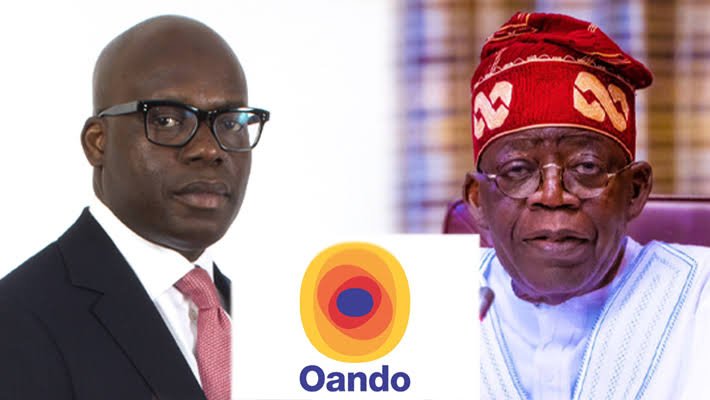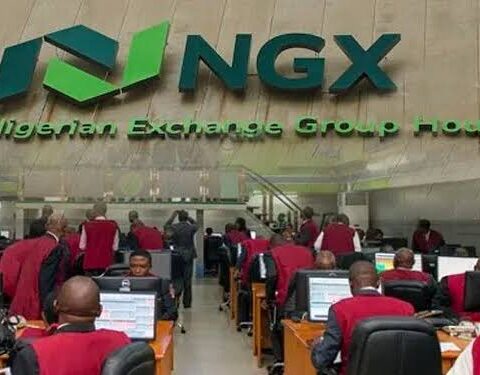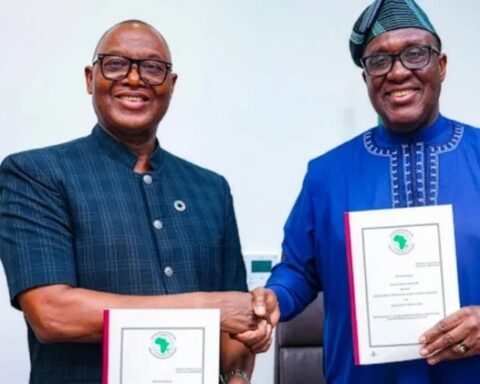Oando Plc, led by Wale Tinubu, President Bola Tinubu’s nephew, has seen its market value skyrocket from N74 billion in 2023 to N1 trillion as of September 2024.
This more than 1,000 percent increase has catapulted Oando into the top 10 most-capitalized companies on the Nigerian stock exchange, even as Nigeria faces its worst cost-of-living and fuel crises.
While multinational companies like GlaxoSmithKline, Microsoft, and Diageo (parent company of Guinness) were exiting Nigeria due to its harsh economic conditions, Oando defied the trend, transitioning from a company generating billions of naira in revenue to one valued in the trillions.
Before President Tinubu’s administration, Oando was an average-performing oil company.
However, in the financial year ending in 2023, the company reported a profit after tax of N74 billion, a significant turnaround from the previous year’s loss.
Just over a year after President Tinubu took office, Oando’s share price, which stood at six naira as of September 1, 2023, surged to an all-time high of N92, reflecting the dramatic increase in its market value.
This surge in Oando’s valuation follows months of speculation after a report by Peoples Gazette in January revealed President Tinubu’s alleged plans to transfer Eni’s Nigerian assets to Oando in exchange for Eni reclaiming Nigeria’s lucrative OPL 245 oil field in partnership with Shell.
Last week, the involved parties publicly disclosed the asset transfer deal, valued at approximately $785 million, while denying any wrongdoing or allegations that Oando benefited from preferential treatment at the expense of Nigeria’s oil sector.
Wale Tinubu and Oando have consistently denied any impropriety, asserting that many of the discussions leading to their recent successes occurred long before Bola Tinubu assumed office.
The dramatic increase in Oando’s market value has sparked widespread speculation online, with many attributing the company’s success to Wale Tinubu’s familial ties to the president.
Critics suggest that the company’s rapid growth is more a result of political influence than merit or hard work.
The economic challenges of currency devaluation, fuel subsidy removal, and the overall crisis have plunged many companies into difficulties, including billionaire Aliko Dangote, who recently lost his title as Africa’s richest man, dropping to second place according to Bloomberg Billionaire Index rankings released in August.
Oando isn’t the only company connected to the Tinubu family thriving under the current administration.
Earlier this year, President Tinubu awarded a massive road contract worth over N15 trillion to a company run by his son, Seyi Tinubu, and his friend, Gilbert Chagoury. The contract for the Lagos-Calabar Coastal Highway project, awarded to Chagoury’s company, Hi-tech, where Seyi Tinubu sits on the board, has sparked fierce criticism and accusations of nepotism.
Despite the collective outrage and criticism from opposition figures like Atiku Abubakar, the presidency has denied allegations of nepotism or corruption in the award of federal contracts under the current administration.
According to the information gathered by Daily Query, Oando’s roots date back to 1956, originally established as Esso Africa, a subsidiary of ExxonMobil.
The company underwent several transformations, eventually becoming Unipetrol Nigeria in 1976 after being nationalized by the Nigerian government. In 1991, Unipetrol became a public company, listed on the Nigerian Stock Exchange.
Tinubu’s connection to Oando began through his association with influential figures in Nigeria’s business and political spheres.
During his tenure as the Governor of Lagos State from 1999 to 2007, Tinubu used his political influence to foster relationships with key players in the oil and gas industry.
One of Tinubu’s key allies in the business world is Wale Tinubu, a distant relative who was a rising star in the energy sector. Wale Tinubu had already made significant strides in the industry, particularly through Ocean and Oil Services, a company he co-founded. In 2000, Ocean and Oil Services acquired a significant stake in Unipetrol during the company’s privatization. This acquisition marked the beginning of what would eventually become Oando.
Bola Tinubu’s influence and support played a crucial role in the growth of Oando. His political connections helped the company secure vital contracts and navigate the complex regulatory environment of Nigeria’s oil and gas sector. Additionally, Tinubu’s ability to attract investment and foster partnerships was instrumental in Oando’s expansion.
By 2002, Oando had fully acquired Agip Nigeria Plc, another major oil company, further solidifying its position as a leading player in the Nigerian energy market. Under Wale Tinubu’s leadership, Oando continued to grow, expanding its operations across Africa and diversifying into various aspects of the energy sector, including exploration, production, and marketing.



























